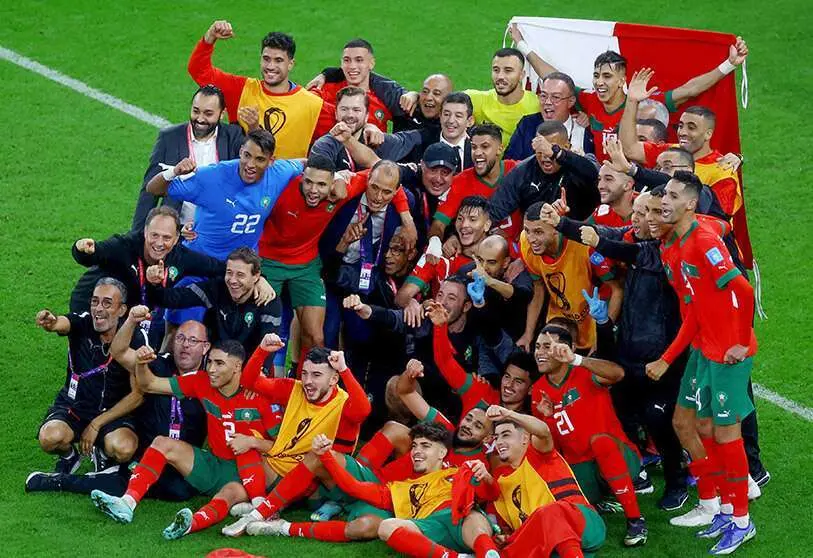Surprising Morocco

On radio and television broadcasts on Saturday, the same commentary was repeated: "Surprising Morocco". The written media have also highlighted the great surprise of the World Cup in Qatar, which has been able to eliminate European teams as reputable as Belgium, Spain and Portugal. They have reached the semi-finals of a World Cup and will have the chance to make even more history if they beat France and reach the final.
There is no need to go that far for those who have devised and designed the strategy that for just over 10 years has placed Morocco at the forefront internationally with the aim of achieving its territorial integrity with the Sahara, its Southern Provinces, and becoming a key element for the stability of North Africa, the Western Mediterranean and, therefore, Europe, Africa and America. Morocco's modernisation programme, spearheaded by King Mohammed VI and his political, economic and social entourage, included with special interest and attention the development of Moroccan sport, especially football. Million-dollar investments in sports facilities in order to achieve the highest and best performance, with the collaboration of specialised Spanish companies, funds to encourage the dedication of sportsmen and women, the promotion of local competitions and participation in regional and international events, and support for those who were born outside Morocco and excelled in different sports, especially football, recruiting them for an ambitious national project with worldwide repercussions are some of the reasons that may explain the success of the surprising Morocco.
We can recall how an appropriate policy of promotion and support for sportsmen and women over a given period of time bore excellent fruit at the 1992 Barcelona Olympic Games. Morocco, with a block style of play, sacrifice in defence and quality, is one of the four best football teams in the world at the moment, reinforcing its role as a leader and representative of the African continent and the Arab world. Even millions of Algerians support their Moroccan neighbours, despite political conflicts that do not always resonate with popular sentiment. We can talk about the automotive industry, renewable energies, agriculture, fishing, research, tourism, measures against inequality and other sectors; now it is football that has a great national effect with the enormous pride of being Moroccan and an excellent international image. Celebrations in Moroccan cities fill the streets with jubilation and joy, a magnificent state of mind that helps to cope with the daily burdens, while in Spain they do not cause problems, but in Paris and Brussels they do, where a serious problem of lack of opportunities and coexistence is evident.

